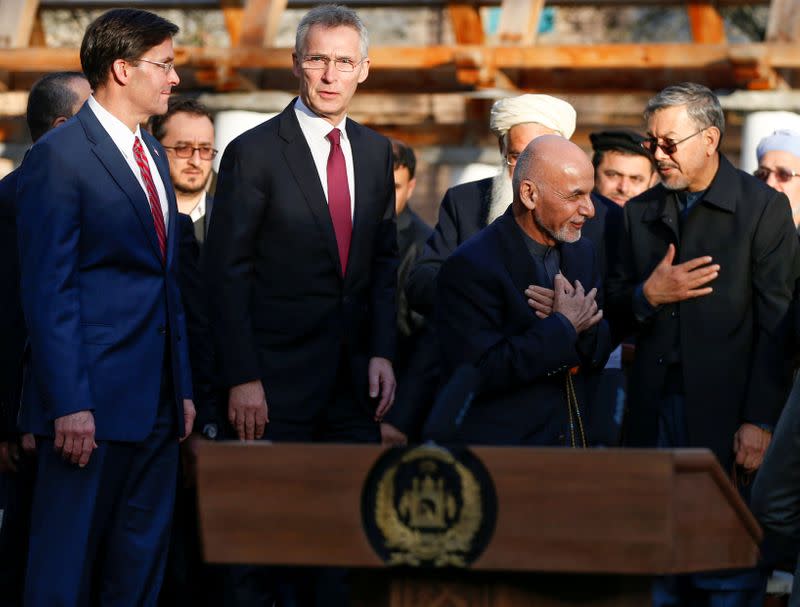Pentagon lays out Afghanistan withdrawal plans after Taliban accord

WASHINGTON (Reuters) - The Pentagon on Monday laid out plans for the initial withdrawal of troops from Afghanistan while saying it was unlikely that violence in the country would go down to zero even after the United States and Islamist Taliban signed an accord.
The United States signed the deal on Saturday in a move trumpeted as a stepping stone toward a full withdrawal of foreign soldiers from Afghanistan and an end to 18 years of conflict in the war-torn nation, though some observers described it as a foreign policy gamble that could give the Taliban international legitimacy.
The Taliban said on Monday that a resumption of operations against Afghan government forces could now take place and they would not take part in intra-Afghan talks until the Afghan government releases about 5,000 of their prisoners.
During a press briefing, U.S. Defence Secretary Mark Esper laid out the timeline for the withdrawal of U.S. troops.
Esper said he had given the head of U.S. forces in Afghanistan, U.S. Army General Scott Miller, the authority to begin the initial withdrawal, which would happen within 10 days.
"My instruction to the commander was, 'Let's get moving, let's show our full faith and effort to do that,'" Esper said.
He added that the United States would reduce its forces to 8,600 within 135 days and then reassess the situation.
The Doha agreement, signed by U.S. special envoy Zalmay Khalilzad and Taliban political chief Abdul Ghani Baradar, said the United States would carry out a full withdrawal in 14 months - contingent on the Taliban keeping a pledge to renounce violence and sever ties with militant organizations threatening the United States and its allies.
An explosion at a football field in Afghanistan's southeastern province of Khost killed at least three civilians and injured 11 on Monday, the interior ministry said. There was no immediate claim of responsibility.
In the same Pentagon briefing with Esper, the top U.S. general said it was unlikely that violence in Afghanistan would go down to zero.
"It is probably not going to zero ... to think it is going to go down to zero immediately, that is probably not going to be the case," Chairman of the Joint Chiefs of Staff General Mark Milley said.
(Reporting by Idrees Ali, Doina Chiacu and Phil Stewart in Washington; Editing by Chizu Nomiyama and Matthew Lewis)


